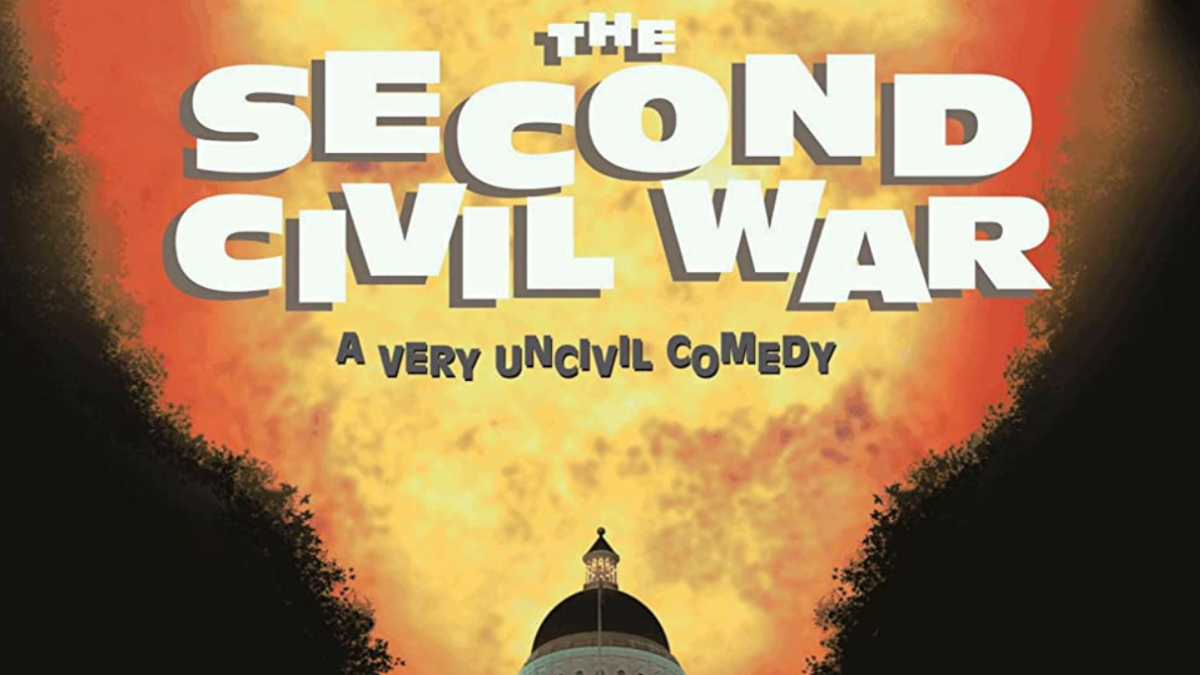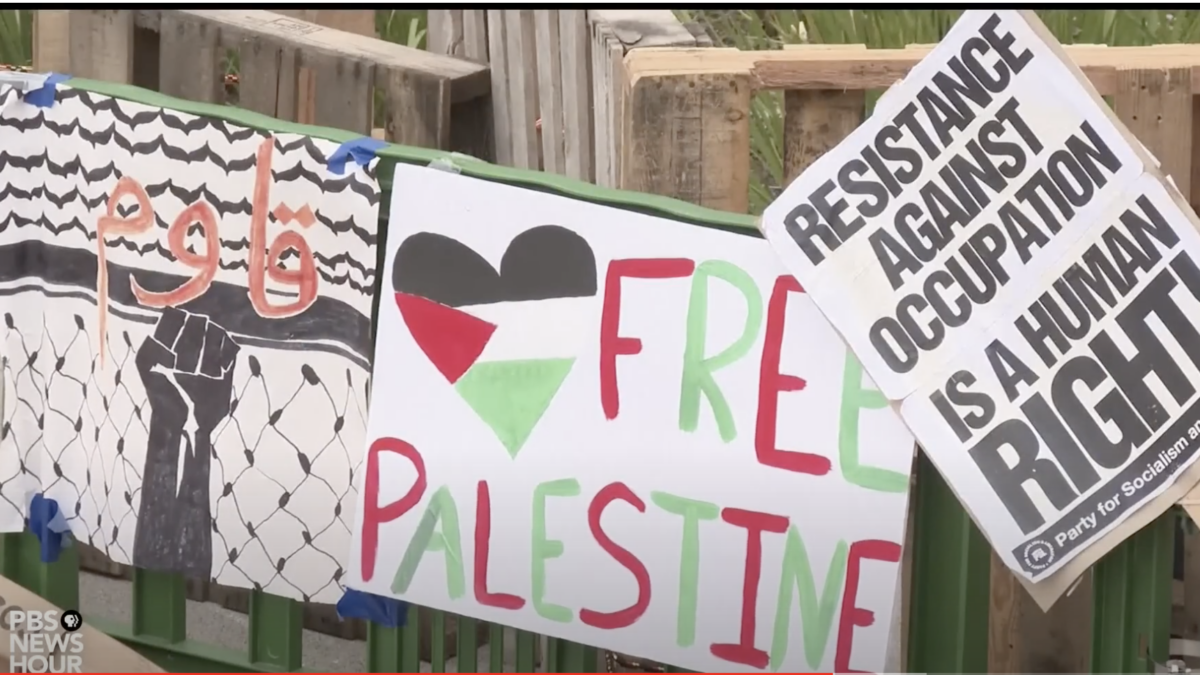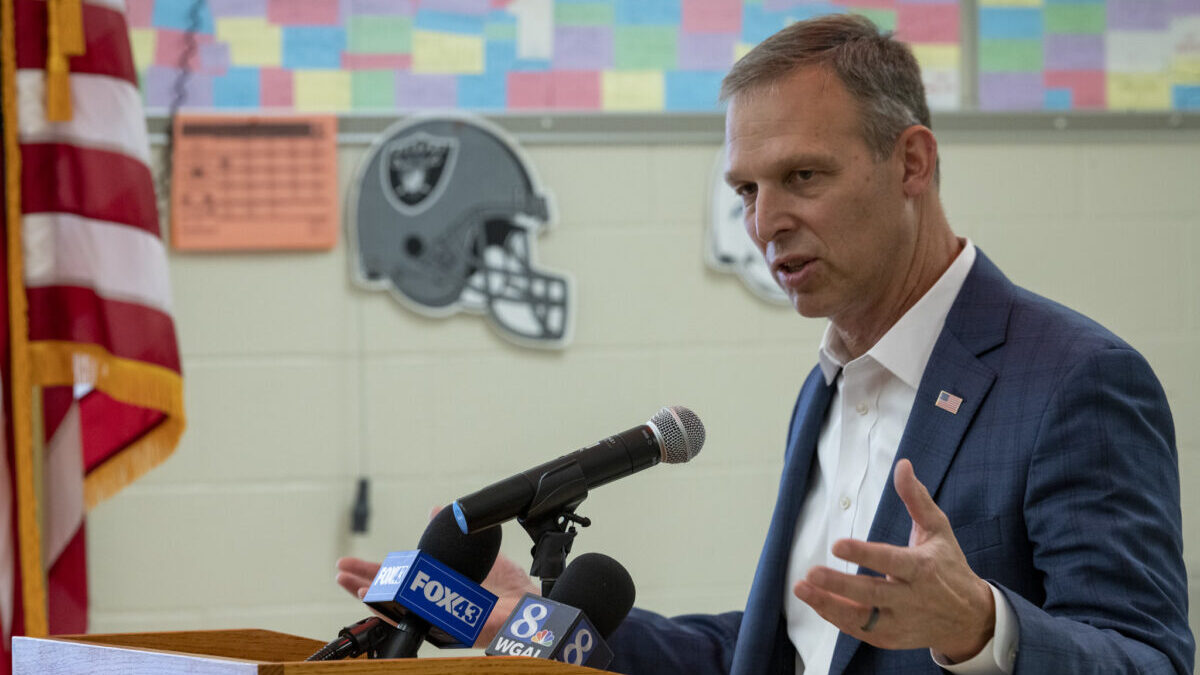Stop me if you’ve heard this one before — a red-state governor, in the midst of a nationwide immigration crisis, defies the president and shuts down the state’s borders to prevent more immigrants from coming in. This leads other states suffering from the effects of mass illegal immigration to rally around the state defying the president, and they all send troops to the state’s borders. Incredibly, this is the plot of “The Second Civil War,” a made-for-HBO movie in 1997. The film languishes in obscurity despite its notable prescience. Which is a shame, because it’s also a surprisingly incisive, entertaining, and well-made film.
But for “The Second Civil War” to have a second life, first you’d have to know about the film. In my case, while staving off boredom at the gym, I listened to a ton of episodes of “The Movies That Made Me,” which is a podcast where they interview a number of actors and major film industry figures about the movies that most influenced them, hosted by screenwriter Josh Olson and director Joe Dante. In particular, Dante’s presence makes the podcast. He’s worked in Hollywood since the 1960s, and his memory of the industry is truly encyclopedic — if for some reason you need to know who the director of photography was on “Logan’s Run,” he can probably tell you off the top of his head.
And if Joe Dante’s name doesn’t ring a bell, his work probably should. He’s directed one classic film, “Gremlins,” and a handful of much-beloved ’80s films that I’d say are remembered fondly enough for whatever reason that we’ll call them near classics — “Innerspace,” “Explorers,” “The Howling,” “The ‘Burbs,” and “Matinee” all stick out in this regard. With a few exceptions, he’s mostly worked in TV since the ’90s. At some point after listening to the podcast last year, I did a deep dive into Joe Dante’s filmography.
Well, after the hype surrounding the recent trailer for the upcoming “Civil War” movie, I remembered that in 1997 Dante directed “The Second Civil War,” and not only that, Dante is on record saying he considers it the best film he’s ever done. You can rent it on Amazon Prime’s video service, so we watched it this past weekend.
The film takes place “somewhere in the near future” and is a broad and consistently amusing satire that takes aim at just about every political center of power in America. The movie employs a very meta but very effective plot device, almost all of the action is explicated through reporters on the scene of various locations — the White House, a state capitol, and reporters embedded with the military — and the on-the-scene reporters are in turn in communication with the producers at the fictional cable newsroom where they all work. Naturally, those producers are all having internal arguments about how to cover the unfolding crisis as they ping back and forth between the on-the-ground perspectives of reporters at different locales. Telling the story this way could have been a mess, but in the hands of a skilled veteran director such as Dante, it works quite well. And while the film did not predict the perversity of online discourse, the illustration of the media’s disturbing incentives is nonetheless accurate and perceptive.
It further helps that the movie has a helluva cast, including James Earl Jones, James Coburn, Dan Hedaya, Beau Bridges, Denis Leary, Elizabeth Pena, and Ron Perlman, and it’s worth the price of admission alone just to see the late, great Phil Hartman play the president. If that weren’t enough, it’s stuffed with great bit players — Kevin Dunn, Brian Keith, Dick Miller, Kevin McCarthy, William Schallert — a lot of, “Oh, it’s that guy!” in this movie.
As for the plot, obviously things are more complicated and less bang-on accurate to the current Texas standoff than the very brief summary up top might indicate — but that doesn’t make things any less trenchant. (There are some mild spoilers ahead.)
The state is Idaho, not Texas, but the way the immigration crisis is illustrated is something. For instance, Chinese immigrants have completely taken over Rhode Island and now dominate the state’s politics, but an all-new wave of immigrants now threatens the Chinese character of the state such that they are riding to support Idaho, now populated largely by white militia types, in its standoff with the Feds. The mayor of Los Angeles holds a press conference all in Spanish where he denounces Anglo control of California before the presser is interrupted by a hail of bullets from black gangs upset with Hispanic control of the city. Sikhs now dominate Alabama and speak with hick accents. There’s a Nation of Islam caucus in Congress, and one of these congressmen confronts James Earl Jones’ character over the fact that he’s a black man married to a Jew. It’s implied that Jones’ character met his wife in the “back of a bus” when they were both Freedom Riders fighting for civil rights, which is just a damning and ballsy confrontation of black racism.
In fact, mass immigration has so thoroughly corrupted America’s politics that there’s a running joke throughout the film about the White House trying to cobble together enough electoral votes by appealing to various balkanized regional ethnic factions. It’s remarkable to see all this acknowledged frankly, let alone played for laughs. If you suggest today that mass illegal immigration is being tolerated because there’s the expectation these millions of people will become voters someday, dilute the voting power of existing citizens, and be exploited for the benefit of the guy in the White House… well, we’re told over and over this is the “great replacement theory” and anyone who suggests this is a possibility is a racist nutcase enabling mass shooters.
And yet 25 years ago, earnest liberals saw this as a logical outcome of what’s happening. Indeed, I know Dante and most of the people involved in this film are the furthest thing from right-wing. (On an episode of the “Movies That Made Me,” Dante nearly did a spit take when legendary director William Friedkin, of “French Connection” and “Exorcist” fame, expressed some Trump sympathies. Though it’s worth saying that Martyn Burke, the screenwriter behind “The Second Civil War,” deserves tremendous credit here. He’s also done an adaptation of Animal Farm and a documentary on the KGB that suggests he’s appropriately skeptical of the left, as well as the right.)
In the end, what makes “The Second Civil War” so good and perceptive is that its satire is omnidirectional and not bound by conventional right-left ideological sympathies. Understanding “The Second Civil War,” as well as our present crisis, ultimately involves examining to what extent reflexive tribalism is a collective manifestation of individual corruption.
In any event, this film is an odd window into a time when good liberals, and I mean that phrase sincerely, used to believe that being an American meant forging consensus around shared ideals. Of course, there’s been a lot of polarization since this film was unceremoniously dumped onto HBO decades ago, and the result is that Americans on the right now worry the left has abandoned forging consensus on American ideals such as free expression and equality among races, while liberals no doubt worry that the backlash to the current mess is white nationalism and a lack of compassion directed toward immigrants.
In sum, “The Second Civil War” deserves a wide audience, and it’s an excellent starting point for Americans of every stripe to reexamine their own assumptions that led us to a very ugly place politically. I suspect good liberal Joe Dante and I probably don’t agree on much politically, but I respect the hell out of the point of view in this film — and what this film got right 27 years ago is pretty astonishing in light of America’s present immigration crisis.









